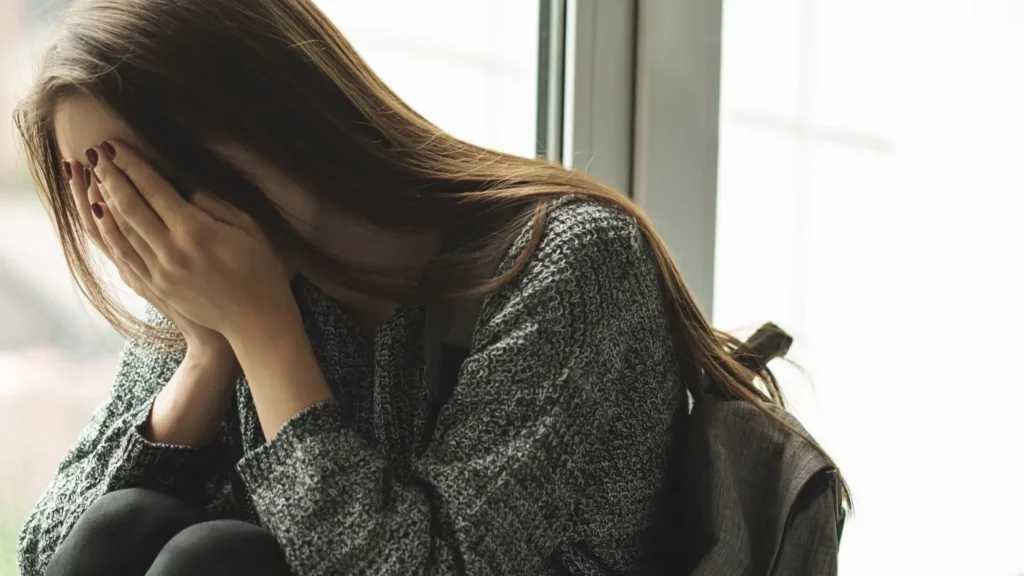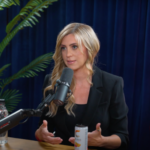Blog Post
Pornography is destroying childhood and changing sexual desire. Here’s how.
Holly Bourne is a best-selling British author who has several critically acclaimed novels to her name – all of them in the category of youth fiction. She is also a whistleblower, and in a recent column for the Daily Mail, Bourne details how ubiquitous porn use among young people is creating a toxic rape culture that makes life unbearable for teenage girls.
The connection between pornography and sexual violence is a subject I have been reporting on in this space for nearly ten years, but the full reality of what it means to see a generation raised on a diet of sexual violence is still sickening to watch.
Reader discretion is strongly advised – Bourne’s column is raw, but I want to quote from it directly and at length. It is not her voice that is important here – it is the voices of the teens that we, as a society, have collectively failed that matter. Bourne has been on the frontlines of youth culture, and what she saw scarred her so badly she experienced mental trauma as a result. Her column opens thusly:
Gripping my office desk, I read the messages landing in my inbox. ‘I’m 14, and my boyfriend wants anal in a car park while people watch.’
‘I’m scared to get strangled but everyone else is doing it.’
‘Sex always hurts and my boyfriend doesn’t care.’
During almost every shift as an online sex and relationships adviser for young people, a teenage girl would write in, confused and upset after she’d been pressured, coerced or forced into having sex. In particular, to have rougher and more violent sex – like the sex they said the boys were watching in online porn. I had known from my training that sexual violence would come up, but I never expected the onslaught. On a bad shift, at least half the messages would involve sexual violence. What was especially upsetting was these girls rarely realised they had just described a rape to me – they just saw non-consensual, degrading and painful sex as a ‘normal’ part of their lives.
That’s what broke me in the end – the girls not realising. That they were feeling ashamed, confused and upset not due to a muddled sexual encounter, but because a horrific crime had been committed against them. It was worryingly evident what early exposure to hardcore porn was doing to this generation.
I have related precisely the same experience here before – that girls have written to me describing sex acts perpetrated on them by boys without realizing that what they have experienced is sexual assault – or sexual violence at a bare minimum. Why? Because sexual violence has been mainstreamed by pornography. It is the first thing you see on any major site. When I started giving presentations on this issue over a decade ago, choking as a sexual practice was unheard of. Now, it is normative. Why? Because pornography has served as sex education for an entire generation, and because it is rewiring their libidos and grooming them to crave and accept sexual violence.
Bourne says that after just a few years as a counselor working with young people, she was “permanently angry, emotional, and distrustful of men,” a “shell of the person I was before, one who needed counselling myself.” Six years from that moment, however, “things have got far worse for young people.” She is correct. Despite overwhelming evidence that pornography is being viewed by children and that the impact of porn on children is incredibly poisonous, we have collectively declined to do anything significant to keep porn away from children. Despite some attempts at age verification and a growing consensus that porn is a social evil, the scale of the damage has not yet resulted in laws banning the rape culture pipeline.
Now, Bourne says, “the widespread consumption of hardcore pornography is now a public health emergency.” She’s right. She notes that she had “rape-related enquiries” at her new job as a counsellor within a week. Horrified, she called her colleagues and asked them how to respond. “This will come up a lot,” they told her. “You may want to write a template answer.” She knew she’d be responding to victims in her job, she noted. “But I never could’ve imagined the scale of it.” From Bourne:
Quite often I’d have to counsel rapists themselves. Boys would write in, describing how they’d pressured their girlfriends into doing a certain sex act ‘until they gave in,’ or had sex with them against their will, who were now seeking atonement. Sometimes they’d describe raping their girlfriend and then complain that she was ‘being weird’ with them, asking for help on how they could ‘get her over it.’ I’d reply professionally and then go to scream in a toilet cubicle… [T]he sex expected of teenage girls now is far more hardcore – and the widespread access to free, violent pornography is the obvious driving force behind that. It has changed how young people learn about sex.
In fact, they grow up thinking porn sex is what sex is.
Girls wrote to me about being pressured into anal sex. Strangulation started to crop up a lot, as well as being badgered to have sex in front of others, to be spat on, have someone ‘finish’ on their faces, or to be filmed. I began researching porn and it made me even more worried. Up to nine out of ten porn films show acts of physical and verbal violence, and women are the targets of this violence 97 percent of the time.
Additionally, the women in porn almost always respond to this violence with pleasure or neutrality. What impact was this having on our teen’s sexual psyche? Can it be true what feminist Robin Morgan said, back in 1974, that ‘porn is the theory and rape is the practice’?
I have been told the same stories and detailed that research in my 2016 book The Culture War. In fact, I use that precise quote from Morgan in my chapter on how porn fuels rape culture.
Bourne is reliving this all now because this sexual landscape is the subject of her new dystopian novel You Could Be So Pretty, which focuses on main character Belle, who “thinks something’s wrong with her because she doesn’t want to re-enact porn” but “craves connection and tenderness.” I have not read it – although I plan to – and thus cannot comment on the merits of the book. It is, however, another work in a growing genre of storytelling that exposes the horrors of the sexual revolution. But I agree, emphatically, with Bourne’s conclusion after her time as a counselor:
I wanted to normalise young girls resisting what’s expected of them. To attack this new sexual script where violence is accepted and welcomed. I want my readers to know that nothing is compulsory sexually, especially something that hurts or scares them. I wish governments would treat pornography as the health crisis it is. I want them to approach it as they do obesity, vaping or alcohol use.
Because what is the lasting health impact of a generation of girls being assaulted by the boys who claim to love them? Who learn that pain and degradation are supposed to be pleasurable?
We are going to find out what that impact is. So far, it is pretty gut-wrenching. We’re going to see a growing divide between the sexes. Angry young people who have every reason to distrust each other. Broken marriages. An even further rise in sexual confusion and deviancy. That is why calling out this problem in clear terms is so important – and why we should consider not simply addressing porn as a public health crisis, but banning it entirely.
***
SUBSCRIBE TO THE BRIDGEHEAD SUBSTACK NEWSLETTER HERE.








